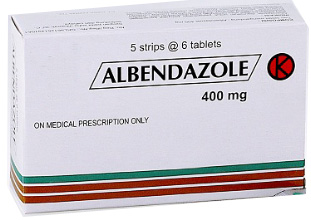Albendazole Medication Overview
Albendazole is a broad-spectrum anthelmintic, or anti-worm medication used in the treatment of various parasitic worm infestations. It is commonly prescribed for diseases such as neurocysticercosis, hydatid disease, pinworm disease, and other helminthiases. Its efficacy stems from its ability to disrupt the metabolic processes of parasites.
Chemical Composition and Formulation
The active ingredient is Albendazole, which is chemically designated as methyl [5-(propylthio)-1H-benzimidazol-2-yl]carbamate. Albendazole is available in various formulations, including tablets, chewable tablets, and oral suspensions, typically dosed in milligrams (mg).
Indications for Use
Albendazole is indicated for the management of:
- Neurocysticercosis caused by T. solium
- Hydatid disease caused by Echinococcus granulosus
- Intestinal parasites such as nematodes (roundworms), cestodes (tapeworms), and trematodes (flukes)
Administration and Dosage Guidelines
Administration of Albendazole should adhere strictly to prescribed dosage instructions. It is typically administered with meals to enhance absorption. Dosage varies by age, weight, the severity of the infection, and the specific parasite being treated. Special dosing and care are required for patients with liver disease and for children due to weight-based dosing considerations.
Pharmacokinetics and Metabolism
After oral administration, Albendazole is rapidly converted into its primary metabolite, albendazole sulfoxide, which is responsible for the anthelmintic action. It reaches peak plasma concentration within 2 to 5 hours. The metabolite then undergoes further metabolism and is primarily eliminated in the bile and urine.
Absorption and Bioavailability Factors
Albendazole’s bioavailability significantly increases when ingested with a fatty meal, which is why it is often recommended to be taken with food. Factors such as gastric pH and gut motility might also affect absorption.
Contraindications and Precautions
Albendazole is contraindicated in patients with a known hypersensitivity to benzimidazole compounds or any constituent of the formulation. Caution is advised when administering to pregnant women, as animal studies have shown teratogenic effects. It is also contraindicated in those with pre-existing severe liver impairment.
Potential Drug Interactions
Albendazole’s metabolism and efficacy may be affected by certain drugs. Enzyme inducers may decrease plasma levels of albendazole sulfoxide, whereas inhibitors can increase them. Caution should be exercised when coadministered with anticonvulsants, such as phenytoin or carbamazepine, and with anti-retroviral therapy.
Adverse Reactions and Side Effects
Possible side effects of Albendazole include but are not limited to gastrointestinal disturbances, headache, dizziness, liver enzyme elevations, and allergic reactions. Rare but severe reactions could include bone marrow suppression, severe skin reactions, or hepatitis.
Monitoring and Laboratory Tests
Periodic blood count tests are recommended to monitor for bone marrow suppression, particularly in patients on prolonged therapy or receiving higher doses. Liver function tests are also advisable before starting treatment and at regular intervals thereafter, particularly in patients with hepatic impairment.
Special Considerations
In pregnant women or women who might become pregnant, Albendazole should only be used if the potential benefits justify the potential risk to the fetus. If used in children for long periods or at high doses, monitoring for changes in bone marrow function is critical. Patients should also be informed about the potential effects on liver function.
Storage and Handling
Albendazole tablets and suspension should be stored at room temperature, away from light and moisture. It should be kept out of reach of children and disposed of in accordance with local regulations if no longer needed or expired.
Patient Counseling Information
Patients should be guided on the importance of taking Albendazole with meals, adherence to prescribed doses, completing the full course of therapy, and the necessity of follow-up and monitoring. Patients should also be advised to report any unusual symptoms or side effects to their healthcare provider immediately.





Reviews
There are no reviews yet.